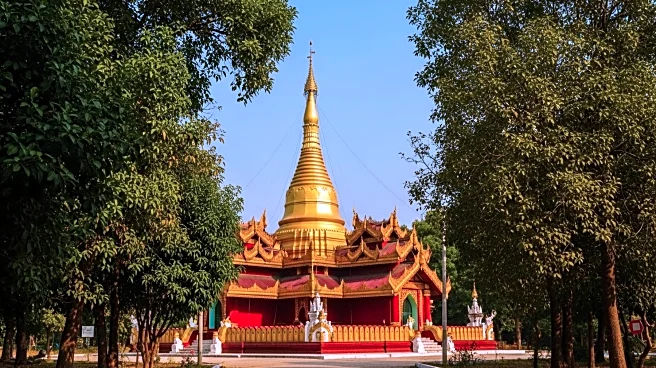What's Happening?
In Myanmar, the Wa self-administered areas have issued warnings against public mobilisation and election campaigning in the towns of Hopan and Panglong. These areas, under the control of the United Wa State Party/United Wa State Army (UWSP/UWSA), have historically resisted government-administered elections. A recent public meeting informed residents about restrictions on election activities, emphasizing that complaints could be filed against unauthorized voter registration and campaigning. The government has repeatedly sought to hold elections in these regions, but the UWSP/UWSA has consistently refused. The Shan State government recently visited the Wa region to discuss elections and other regional issues, with elections scheduled for December.
Why It's Important?
The situation in the Wa self-administered areas highlights the ongoing challenges in Myanmar's political landscape, particularly in regions with strong local governance structures like the UWSP/UWSA. The refusal to allow government-administered elections underscores the tension between local autonomy and national governance. This development could impact Myanmar's efforts to establish a unified electoral process and may influence international perceptions of its democratic progress. The enforcement of the Law on the Protection of Elections from Disruption and Sabotage further complicates the situation, as it introduces severe penalties for election-related disruptions, potentially affecting political dynamics and civil liberties in the region.
What's Next?
As the December elections approach, the Myanmar government may continue to negotiate with the UWSP/UWSA to facilitate electoral participation in the Wa regions. The outcome of these negotiations could set a precedent for future interactions between the central government and self-administered areas. Additionally, international observers may monitor the situation closely, assessing Myanmar's commitment to democratic processes and human rights. The enforcement of the new election law will also be scrutinized for its impact on political freedoms and the conduct of elections across the country.











